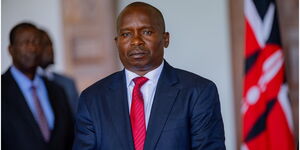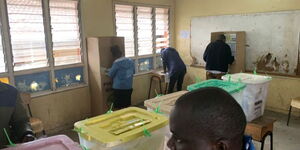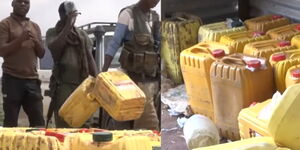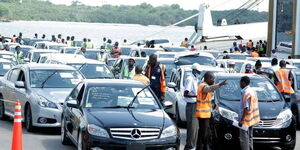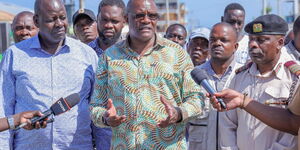The Energy and Petroleum Regulatory Authority (EPRA), on Monday, August 14, reinstated the fuel subsidy programme President William Ruto scrapped on September 15, 2022.
In its review of this month's pump prices, the authority noted that the Petroleum Development Fund was reinstated to cushion Kenyans from higher fuel costs which was caused by the doubling of the Value Added Tax (VAT) on petroleum products from 8 to 16 per cent.
EPRA further explained that the increased landing costs of fuel also occasioned the return of the subsidies which Ruto campaigned against and even accused the previous regime of misusing the funds to benefit select oil marketers.
As per EPRA's calculations, the cost of Super Petrol was to hit Ksh202.01 without the subsidy programme- a difference of Ksh7.33 from the current prices.
Conversely, Kerosene was to increase by Ksh5.74 while Diesel was projected to shoot up by increases by Ksh3.59.
The authority added that the reintroduced Petroleum Development Fund will thus be used to compensate importers of the commodity at Ksh7.33, Ksh3.59 and Ksh 5.74 per litre of petrol, diesel & kerosene, respectively.
With the subsidy in place, the government ensured that fuel costs for the period starting August 15 to September 14 remained unchanged. Super Petrol, Diesel, and Kerosene will retail at Ksh194.68, Ksh179.67, and Ksh169.48, respectively.
"In order to cushion consumers from the spike in pump prices as a consequence of the increased landed costs, the government has opted to stabilize pump prices for the August-September 2023 pricing cycle," EPRA explained.
"Oil Marketing Companies will be compensated from the Petroleum Development Fund," it added.
Uhuru's Subsidy
Former President Uhuru Kenyatta's administration initiated the subsidy programme to moderate pump prices, which also influence the prices of essential commodities such as foodstuffs. Kenya, under Uhuru, spent an average of Ksh7.65 billion monthly to subsidise diesel, super and kerosene.
His successor, President William Ruto, was one of the most prominent critics of the subsidy programme, which he described as unstainable.
Ruto expressed concern that few individuals were benefitting from the programme at the expense of the taxpayers who had to foot the bill for the importers.
"On fuel subsidy alone, the taxpayers have spent a total of Ksh144 billion, a whopping Ksh60 billion in the last four months," Ruto stated during his September 13, 2022 inauguration.
"If the subsidy continues to the end of the financial year, it will cost the taxpayer Ksh280 billion, equivalent to the entire national government development budget," he added.
IMF's Stance on Subsidies
Removal of the subsidies was said to be among the conditions set by the International Monetary Fund (IMF) to grant loans to President William Ruto.
"The authorities intend to continue gradually realigning domestic to global fuel prices in the financial year 2022/23 so as to eliminate the fuel subsidy by October 2022,” the IMF said in the third programme review for Kenya's Ksh270.2 billion ($2.34 billion) loan package.
“The authorities also plan to complete by end-July 2022 a review of the application of Kenya’s fuel pricing mechanism and constitute a task force to oversee the progressive elimination of the fuel subsidy within the first half of FY2022/23 and to ensure that fuel pricing actions are at all times aligned to the approved budget (new structural benchmark)," IMF added in July this year.
It is yet to be clear whether IMF approved Kenya's fiscal policy changes, especially after praising Ruto for sustaining the economy. However, in recent months, Ruto criticised the IMF and World Bank for issuing loans with strict conditions and called for a robust system that guarantees financial freedom.

